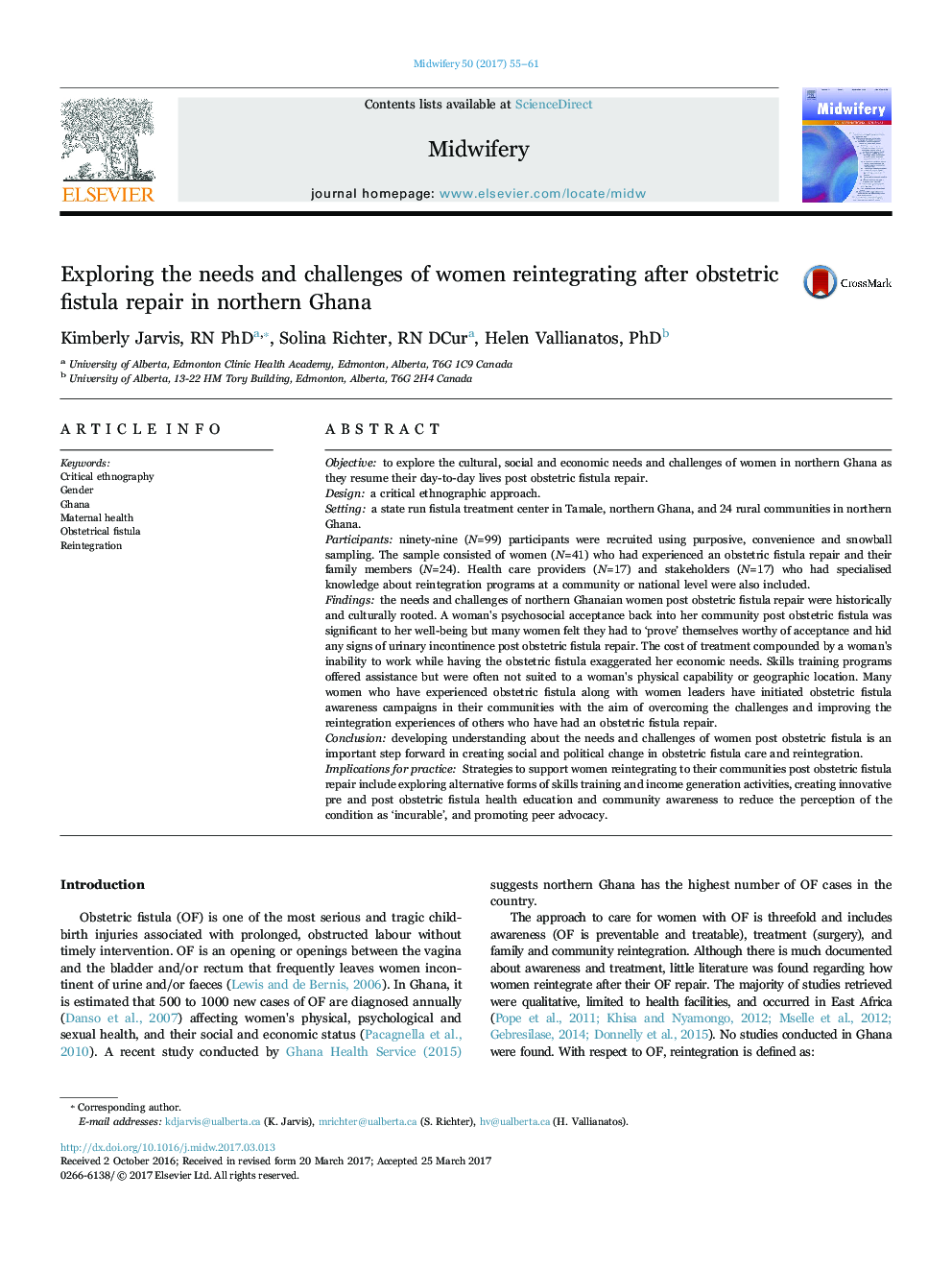| Article ID | Journal | Published Year | Pages | File Type |
|---|---|---|---|---|
| 5122351 | Midwifery | 2017 | 7 Pages |
Objectiveto explore the cultural, social and economic needs and challenges of women in northern Ghana as they resume their day-to-day lives post obstetric fistula repair.Designa critical ethnographic approach.Settinga state run fistula treatment center in Tamale, northern Ghana, and 24 rural communities in northern Ghana.Participantsninety-nine (N=99) participants were recruited using purposive, convenience and snowball sampling. The sample consisted of women (N=41) who had experienced an obstetric fistula repair and their family members (N=24). Health care providers (N=17) and stakeholders (N=17) who had specialised knowledge about reintegration programs at a community or national level were also included.Findingsthe needs and challenges of northern Ghanaian women post obstetric fistula repair were historically and culturally rooted. A woman's psychosocial acceptance back into her community post obstetric fistula was significant to her well-being but many women felt they had to 'prove' themselves worthy of acceptance and hid any signs of urinary incontinence post obstetric fistula repair. The cost of treatment compounded by a woman's inability to work while having the obstetric fistula exaggerated her economic needs. Skills training programs offered assistance but were often not suited to a woman's physical capability or geographic location. Many women who have experienced obstetric fistula along with women leaders have initiated obstetric fistula awareness campaigns in their communities with the aim of overcoming the challenges and improving the reintegration experiences of others who have had an obstetric fistula repair.Conclusiondeveloping understanding about the needs and challenges of women post obstetric fistula is an important step forward in creating social and political change in obstetric fistula care and reintegration.Implications for practiceStrategies to support women reintegrating to their communities post obstetric fistula repair include exploring alternative forms of skills training and income generation activities, creating innovative pre and post obstetric fistula health education and community awareness to reduce the perception of the condition as 'incurable', and promoting peer advocacy.
